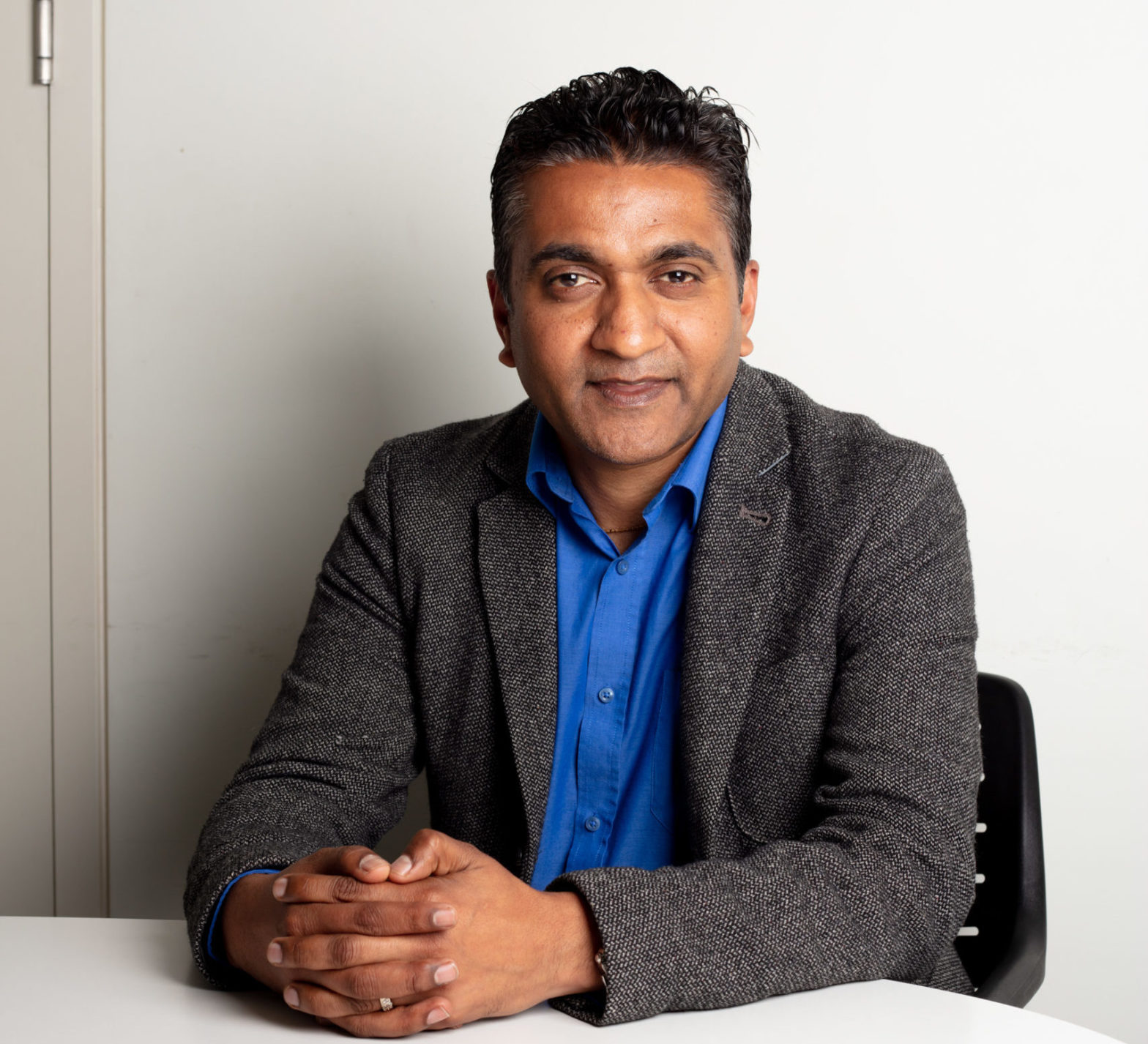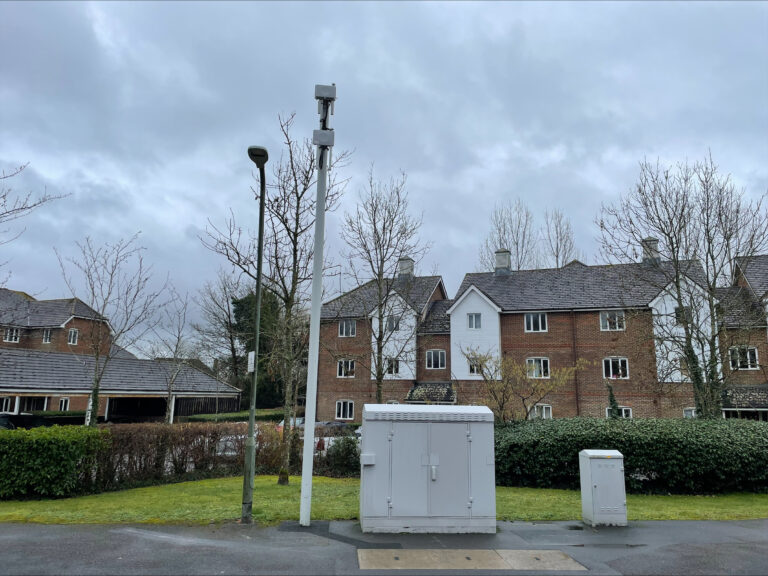
Photo: Cities Today Institute
Transport for London’s former innovation chief joins Cities Today Institute
09 March 2023
by Christopher Carey
Christopher Carey speaks with Rikesh Shah, Transport for London’s former Head of Open Innovation, about his career to date and the new position he’s taking up at the Cities Today Institute.
After 22 years at Transport for London, Rikesh Shah is on the move.
He is taking up a new role with PA Consulting to expand its offering on open innovation and open data.
Shah is also joining the Cities Today Institute – which provides peer-to-peer events and research for city leaders – as non-Executive Director of Civic Innovation, marking the next steps in a remarkable career that all started at his family’s kitchen table.
“My father worked for London Underground for 38 years – so what we spoke about at the dinner table was public transport,” says Shah.
“That directly just started to seep into my mindset, that transport is cool.”
Shah joined TfL in 2001, starting in a marketing role before progressing into commercial development, and then onto digital partnerships and open data.
In 2017, he set up the operator’s first ever open innovation unit. It is recognised as one of the best in the public sector for introducing a new approach around public and private sector collaboration to improve cost savings, boost revenue and deliver better policy outcomes faster.
New model
Shah led a matrix team in the agency’s commercial innovation department, where staff are brought in from across the organisation to find new ways to create value for customers, operations and the city as a whole.
This way of working can be an unusual model in the public sector but Shah believes he has demonstrated that it works.
“The open data work, where we listed all of our data, is powering a whole new community of innovators, who are literally providing people with information to move around our city, and that now has scaled across the world.”
TfL established a series of strategic digital and data partnerships with major technology companies and smartphone travel application providers. At its peak, 17,000 developers were using TfL’s open data.
“We changed how people accessed transport information across the world,” Shah says.
This resulted in over 700 customer-facing apps now powered by TfL data, which are used by 42 percent of the city’s nine million residents.
“I think the innovation hub is a new way of how the public and private sectors can collaborate.
“It shows how the public sector can be a testbed for innovation, and how to scale projects to do things better, cheaper and quicker.”
The hub has seen the private sector contribute to solving many of London’s key challenges, including reducing road deaths and improving air quality.
To better understand road risk, TfL worked with Mercedes Benz to identify near-miss incidents based on data from the car on road conditions, swerving and sudden braking.
This provided new insights on key hotspots to enable targeted interventions.
Since then, the operator has also worked with start-up See.Sense to look at cycling data and the wider fleet including buses and freight.
Big picture
Looking at the bigger picture, Shah feels that being flexible and keeping moving is crucial, but within the public sector this can be a challenge.
“We always need to be looking at how we can be more flexible, more agile, and be continuously innovative, rather than just sticking with the status quo,” he says.
“I’ve always believed that you’ve got to be curious, try to experiment and be ready to fail fast, learn from those mistakes and move forward. This is particularly relevant now as advances in technology mean the innovation can come from anywhere – it could be internal, start-ups, scale-ups, corporates, venture capitalists, academia and so forth. The public sector needs to define the right problems and then work with innovators to create new value.”
Reflecting on his time at TfL, Shah says he will have fond memories but is hungry for new challenges.
“The role that the public sector and public policy play to make society better is something that’s close to my heart.
“And the role that transport plays around social inclusion and access is a fundamental fabric of our society – it’s just fantastic, and the people that I’ve worked with are all passionate about doing social good.”
“It’s a weird, strange feeling, detaching myself from an organisation that’s all I’ve ever known.
“But I’m going on my terms and going really happy, so it’s nice as well – facing new, exciting challenges ahead at PA Consulting, which I think is a very innovative organisation.”
Shah joined the transport team of PA Consulting on March 6, bringing his open innovation and open data expertise to support public and private sector clients.
“It’s time to also challenge myself personally, to do something different. It’s an exciting juncture in my career as a person that focuses on the public sector,” he says.
In his new role for the Cities Today Institute (CTI), Shah will advise on municipal collaboration as well as helping to lead the City Leadership Forum meetings, putting civic innovation at the top of the agenda.
As well as being a big champion for diversity in transport and innovation, Shah is also an advocate for improving public-private dialogue and driving new models of cooperation.
“I’ll be more involved with some of the sessions, internationally and locally. Just putting in that innovation perspective when we’re having those different debates,” he says.
“The CTI is a fantastic Institute, and really creates thought-leading debates.
“I’m hoping to bring a perspective of thought leadership around public sector innovation, both with my transport hat on but also beyond – looking at how we can continue to have really good challenging debates around how we use innovation to do social good.
“Not just a proof of concept or an R&D stage, but fundamentally roll out innovation across cities and across the public sector to realise those benefits.”
Public sector innovation
Looking at the wider relationship between public and private interests, Shah says there is room for improvement.
“We need to look at how we can bridge that gap between the public and private sectors.
“I think at the moment the public sector can get worried about working with the private sector, and the private sector is constantly trying to lobby the public sector, saying ‘we want to innovate with you’.
“But really we need to focus on how to drive better collaboration that’s much more mission orientated, where you get public sector investment together with private sector investment, and you’re both on the same page.”
Shah says it’s also crucial to identify common issues and challenges that cities have and enable them to share knowledge with each other and with the private sector.
“We need to get better at deciphering the hype with all the emerging technologies coming through – actually look at how this can be applied and challenge the market to say ‘let’s stop the hype’,” he comments.
“It’s important that the private sector can be constructively challenged, as it will lead to a richer debate about how we can apply technology that cities actually need.”










